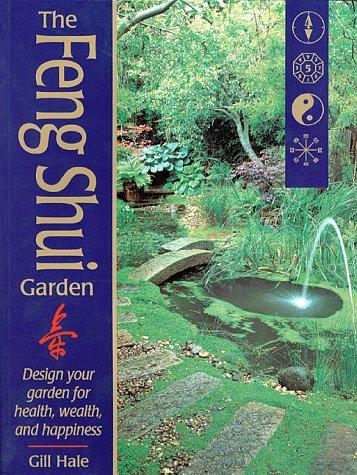Stepping into the serene world of The Feng Shui Garden: Design Your Garden for Health, Wealth, and Happiness by Gill Hale, published in 2000, feels like entering a peaceful sanctuary. This isn’t just another gardening book; it’s a guide to understanding how the ancient principles of Feng Shui can transform your outdoor space into a haven of positive energy. Gill Hale, a respected Feng Shui consultant and author, brings her expertise to the forefront, making complex concepts accessible and practical for any reader. Hale’s approach isn’t about rigid rules but about creating a harmonious environment that supports personal well-being. The book’s publication in the early 2000s, amidst a growing interest in alternative wellness and holistic living, makes it remarkably relevant today as more people seek ways to connect with nature and improve their home environments.
Understanding Feng Shui Principles
Hale meticulously lays out the core principles of Feng Shui, explaining how the placement of different elements in your garden can influence your life. She doesn’t overwhelm the reader with esoteric jargon; instead, she breaks down concepts like the Bagua (a Feng Shui energy map) and the five elements (wood, fire, earth, metal, and water) into easily understandable terms. The book guides the reader through assessing their garden, identifying energy imbalances, and making adjustments to achieve a more balanced flow of Chi – the vital life force. This systematic approach provides a solid foundation for anyone, regardless of their gardening experience, to create a Feng Shui garden.
Practical Application and Design
The strength of The Feng Shui Garden lies in its practicality. Hale provides actionable advice, accompanied by detailed diagrams and real-world examples, showing how to apply Feng Shui principles to various garden sizes and styles. The book doesn’t just focus on grand designs; it emphasizes small adjustments that can make a big difference. For example, she explains how a curved pathway can encourage positive energy flow, while a sharp corner can create stagnation. There are specific recommendations for plant choices, color palettes, and water features, all designed to harmonize with the five elements. This makes the book less of an academic study and more of a hands-on guide to creating a personal sanctuary. Check it out on Amazon.
The Emotional Resonance of the Garden
Beyond the technical aspects, Hale explores the emotional and spiritual benefits of a Feng Shui garden. She describes how a balanced outdoor space can reduce stress, improve relationships, and enhance overall well-being. The book encourages readers to see their garden as an extension of their living space, a place where they can connect with nature and nurture their soul. There’s a strong emphasis on the power of intention and the idea that by consciously designing your garden, you’re also shaping your personal energy and experiences. This resonated with me on a personal level, reminding me of the profound impact that our surroundings can have on our emotional state. I’ve always felt a sense of calm while gardening, and this book illuminated the science and philosophy behind that feeling.
Writing Style and Narrative Techniques
Hale’s writing style is clear, concise, and engaging. She avoids complicated language, making the complex concepts of Feng Shui easily accessible to the average reader. The narrative is interspersed with anecdotes and case studies, demonstrating how others have successfully applied these principles in their own gardens. The author’s voice is both authoritative and approachable, making it feel like you’re learning from a knowledgeable friend rather than a distant expert. The book is beautifully illustrated, with photographs and drawings that further enhance the reader’s understanding of the design concepts. The pacing is well-balanced, with each chapter building logically on the previous one. You can find the book here.
A Lasting Impact
The Feng Shui Garden is more than just a practical guide; it’s an invitation to create a sacred space that nurtures your well-being. Hale’s book is a testament to the power of mindful design and the importance of connecting with nature. It provides a framework for understanding how the energy of our environment impacts our lives, and it offers practical solutions for creating a more harmonious and balanced living space. It’s a book that you’ll find yourself returning to again and again, each time discovering new insights and inspiration. This isn’t just a one-time read; it’s a guide for a journey.
Recommendation and Similar Reads
I wholeheartedly recommend The Feng Shui Garden to anyone interested in gardening, interior design, or holistic wellness. It’s particularly valuable for those who are seeking to create a more peaceful and positive environment in their lives. If you enjoyed this book, you might also find The Life-Changing Magic of Tidying Up by Marie Kondo, or Sacred Space by Denise Linn, equally inspiring. These books explore similar themes of mindfulness and intentional design, but in different contexts. Ultimately, The Feng Shui Garden is a beautiful and practical guide that can help anyone create a more harmonious and fulfilling life through the power of mindful design. Check the price.
The book’s lasting impact comes from its encouragement to actively participate in creating an environment that supports personal growth and well-being. It’s not just about aesthetics; it’s about harnessing the energy of your surroundings to enhance your life. The lessons of The Feng Shui Garden remain as relevant today as they were at the time of its publication, making it a timeless guide for cultivating a harmonious living space. Consider purchasing a copy through this Amazon link.

